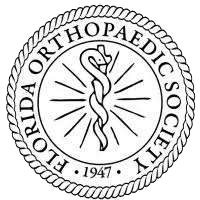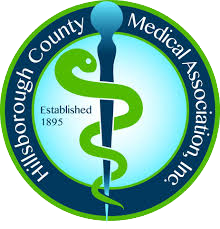WHAT TO EXPECT WHEN YOU ARE HAVING SURGERY
Occasionally, orthopaedic problems can only be treated with surgery; other times, surgery is elective to help correct the problem. We encourage you to get a second opinion. We understand that having surgery can be a difficult and anxious time for some patients and for others it is no big deal. Our physicians will discuss with you the proposed surgery and the risks associated with the surgery. Once you are ready to proceed with surgery, you will be directed to talk to the surgery secretary or business manager to schedule a surgery time. Often times it may be necessary for someone to call you back to schedule the time for surgery. Memorial Hospital is our primary hospital for most of our in-patient surgical procedures. We are able to do surgery at St. Joseph’s Hospital, and some of our contracted insurance plans require the use of this hospital for in-patient procedures. The majority of our outpatient surgeries are done at Tampa Bay Surgery Center.
WE PERFORM SURGERY AT THESE HOSPITALS:
BEFORE SURGERY
With the majority of the surgeries we perform, our physicians will require you to get a medical clearance from your primary care physician. You will also need to have certain lab work completed in addition to an EKG and chest x-ray, depending on your age. Our physicians will see you back in the office approximately 5-7 days prior to your surgery and at the time of this appointment all of your pre-operative labs and clearance will need to be completed and in our office for the physicians’ review. A post-operative appointment will be made for you to follow-up with the physician. We will then make copies of the results and make a packet for you to take to the hospital. In most cases, you will need to go to the hospital the same day – you will sign their paper work, meet with anesthesia, etc.
The night before surgery we ask that you do not eat, drink or smoke anything after midnight the night before your procedure. This includes gum, candy and water. It is recommended that you wear loose fitting comfortable clothes to the hospital and leave all valuables at home (money, jewelry, credit cards, etc). Remove all make-up and nail polish at home. Bathe or shower the night before surgery. Bring a list of all medications you are taking. You will be asked several times, “what is being operated on?” Please take this question as seriously as it is intended and answer clearly and correctly each time. Arrange for transportation home after discharge. You will not be allowed to drive or take public transportation.
DAY OF SURGERY
Exactly what will happen in your case will vary depending on the procedure being performed. You will first sign in at the facility in a pre-designated area. Once finished there, they will direct you to the surgical area. The nurses will ask many questions, some of which you have answered already. You will be given a hospital gown to put on and an I.V. will be started. The surgery being performed will determine what other, if any, pre-operative procedures are done. The physician will meet with you and your family before the procedure to answer any questions you might have. Once it is time for your surgery, you will be wheeled to the operating room where the anesthesiologist will start the anesthesia selected by the physician. After the surgery is completed, you will be taken to the recovery room. The physician will update your family as to how the surgery went. For a patient being admitted, you will be taken to your room an hour or so after the completion of your surgery. For outpatients, the rule of thumb is however long the surgery is, that is how long you will stay in recovery. Each person is different and no patient is ever hurried to go home.
AFTER SURGERY
Your physician will provide you with post-operative instructions regarding diet, rest, exercise and medications. The surgery center/hospital will provide you with a written copy of these instructions. You may experience sleepiness, dizziness, or nausea. These are normal side effects and may continue for 12 to 24 hours following surgery. It is also normal to feel sleepy after receiving anesthesia. We recommend that you do not drive or operate equipment of machinery, sign important papers, make important decisions or drink alcoholic beverages for at least 24 hours following surgery.
ACCOMPANYING A SURGICAL PATIENT
If you are accompanying the patient to the hospital and/or surgery center, you may stay with the patient in the preoperative waiting area. During surgery, you may either wait in the designated area or you may leave. If you are going to leave, please check with the pre-op nurse, who will give you an estimated time to return. For outpatient surgeries, you will normally be allowed to rejoin the patient while they are waiting to go home. For in-patient surgeries, you will not be able to rejoin the patient until they are transferred to their room.












